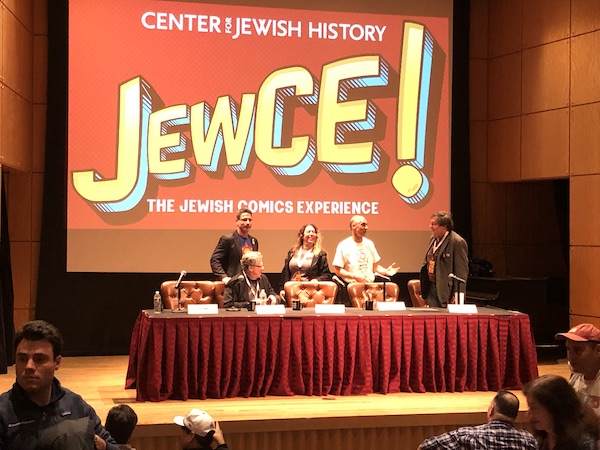
BY CHARLI BATTERSBY | For November 10’s Jewish Comics Experience (JewCE), I dressed as Supergirl. There aren’t many cosplayers at small, one-day comic conventions like this. But I always cosplay at cons. And I have to be on good behavior when I’m dressed like Supergirl; wearing that big red “S” on my chest obligates me to be as wholesome as George Reeves, and as kind-hearted as Christopher Reeve. After all, Superman was created by two nice Jewish boys to be a role model for kids. So was Batman. And almost all of the Marvel Universe. Role models, and the creations of Jewish writers and artists.
On my subway ride to the Center for Jewish History (15 West 16th Street), I made sure to smile graciously at people who complimented my costume. Supergirl would be humble and gracious. A woman offered me her seat because I was wearing high heels, but I let her have the seat. It’s what Supergirl would do.
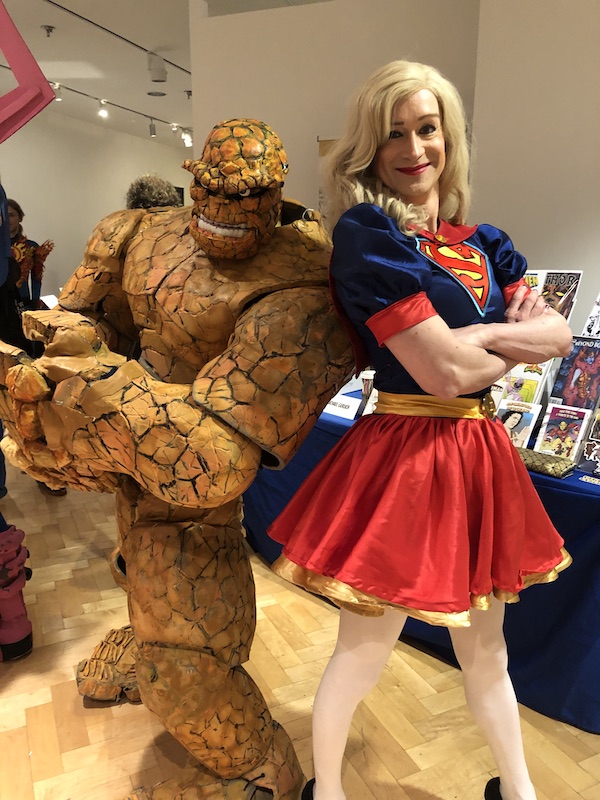
I walked boldly for the half block from the subway station to the venue; the first JewCE took place a month after the Hamas attack on Israel in October 2023, and this time around was one month after the anniversary. I wasn’t sure if there would be violent protesters in front of the con. But Supergirl would be brave, so I had to be brave too.
My caution wasn’t needed. There were no protesters outside, just a kosher falafel truck.
I arrived in time to take some photographs with a group of cosplayers dressed as Jewish superheroes. There was Kitty Pryde from the X-Men, one of the early examples of a superhero being explicitly Jewish. A group of Fantastic Four cosplayers had a guy in a full Thing costume. The Thing is another example of a mainstream superhero who was Jewish. And obviously Jewish based on his speech patterns and backstory, even though it took 40 years for Marvel to officially state his religion (through dialogue in the comic books).
Although this was a small convention, there was still content running in three different rooms all day, more than any one person could see. Early in the day a panel of writers and artists discussed Jewish mythology as an influence on comic books (11:30am’s Jewish Mythology and Fantasy in Adventure Comics). Cartoonish Neil Kleid, who moderated, mentioned that among the more unique ideas was the fable of an ocean of Jewish tears. Not to mention, Šulak, a toilet demon from the Talmud.
The main auditorium had featured content, including events with a more mainstream focus. A panel on Batman’s 85th birthday still somehow turned into a discussion about whether or not Bruce Wayne is Jewish. DC Comics shies away from formally stating the religions of their most popular characters, but there was a heated debate about whether Superman or Batman is the more Jewish character. Some of the panelists argued that Superman’s backstory of being rocketed to Earth as a baby was obviously inspired by the story of Moses.
There was also a career retrospective with Chris Claremont (best know for writing the Uncanny X-Men comics for 16 years straight in the 70s, 80s and 90s). Although Claremont didn’t create the original team of X-Men, he did develop them, and greatly expanded the roster of supporting characters, new teammates, and spinoff titles.
In his panel, he spoke about Magneto being a Jewish villain and, ironically, one who survived the Holocaust only to become genocidal towards non-mutants. Many of Claremont’s classic storylines elevated the X-men from adventure stories to more complex, character-driven epics.
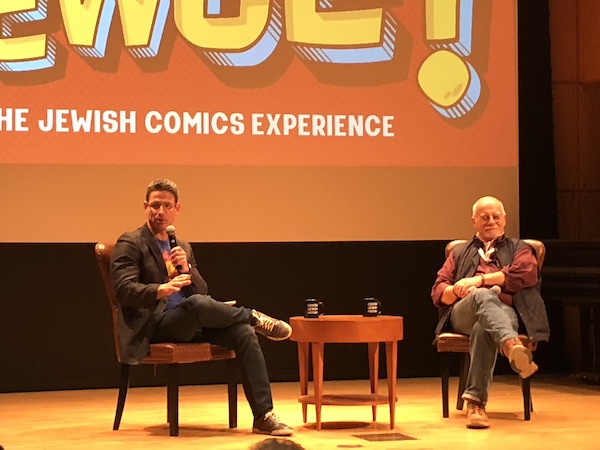
The JewCE gave fans the chance to speak casually with comics celebrities like Claremont and Danny Fingeroth (who edited Spider-Man in the 80s among many, many, more credits). The intimate venue meant that these giants of the industry were on hand to chat with small groups of fans. This is the sort of thing that would be unthinkable at San Diego Comic Con or last month’s NY Comic Con, where hundreds of thousands of attendees swarmed the autograph room.
After Claremont’s panel, our reporter had the chance for an interview. We asked if there is a comic storyline he did for the X-Men that has never been adapted into a movie or cartoon. He replied, deadpan, “Dark Phoenix.”
Everyone in the room laughed, even though Claremont was being serious. This classic story has been loosely adapted in three different cartoons and two movies. But no one has gotten it right yet, especially the slow change in the character of Jean Grey as she transitions from Marvel Girl to Phoenix to Dark Phoenix.
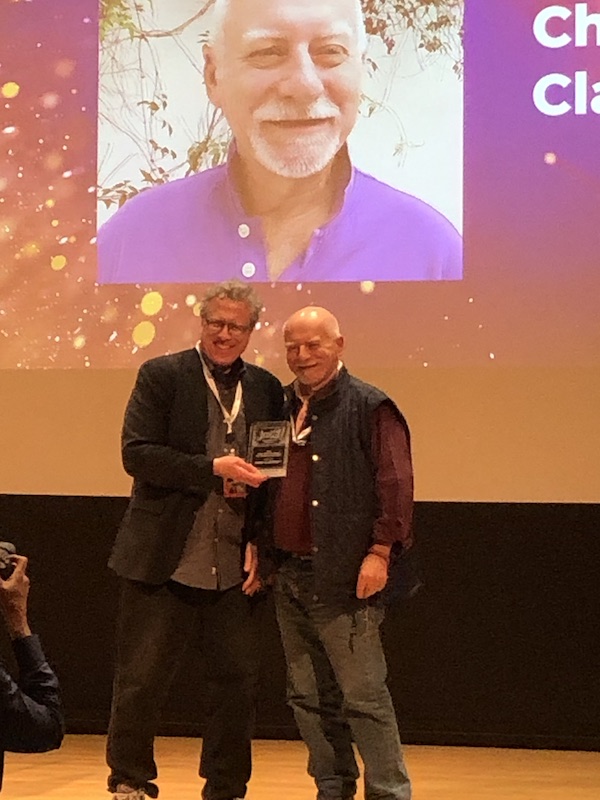
On a more serious tone, Claremont said that he would like to see the graphic novel God Loves. Man Kills adapted. This 1982 story loosely inspired the second X-Men feature film, but the movie overlooked the religious aspects of the comic, which dealt directly with religion-based bigotry against mutants.
Claremont wondered aloud as we spoke, about the many adaptations of his work, saying, “I keep asking why is it so hard. I mean, [the X-Men] are interesting people, they’re interesting situations. They’re scary situations. Why is it so hard?… Deadpool & Wolverine got Logan right. About time. Hurray for Hugh Jackman. I’d really like to see another one done right. So, fingers crossed.”
He expounded on unused story ideas for what could have been, if he had full control of the X-Men. A heroic Magneto, Scott Summers and Madelyne Pryor having a happy ending, even a Happily Ever After for Professor X (who Claremont refers to as “Charlie”).
“These aren’t my characters,” he told us. “As Stan [Lee] used to say, many times, ‘You’re given these characters for a certain amount of time, when you’re done you put them back on the shelf the same way you found them. So the next person can take over without having any problems.’ The only real problem from my perspective is that I stuck around far too long, and they had changed so much by that time. And everyone loved what was there. And they didn’t want to put it back on the shelf.”
At the end of the Jewish Comics Experience, the second annual JewCE Awards were held, and Claremont won the Trina Robbins Award for Career Achievement. Upon accepting the award, he blurted out, “But I’m not done yet!”
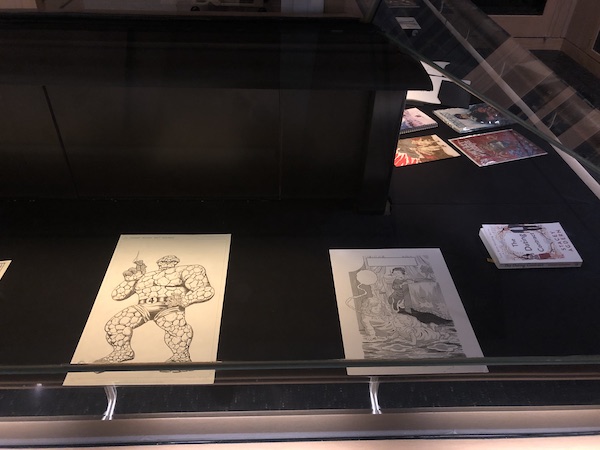
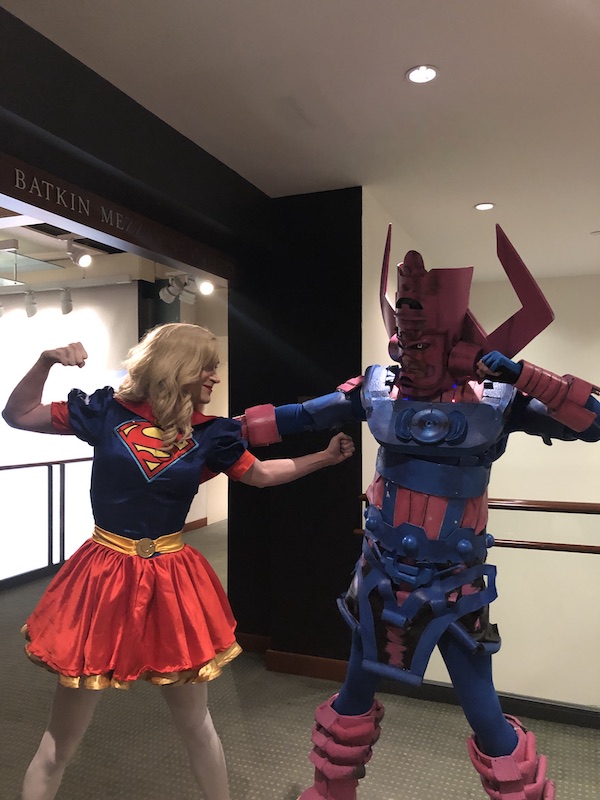
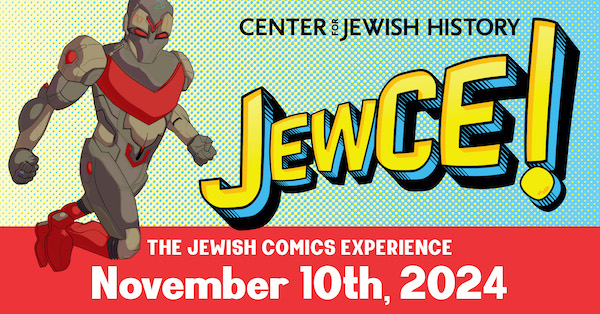
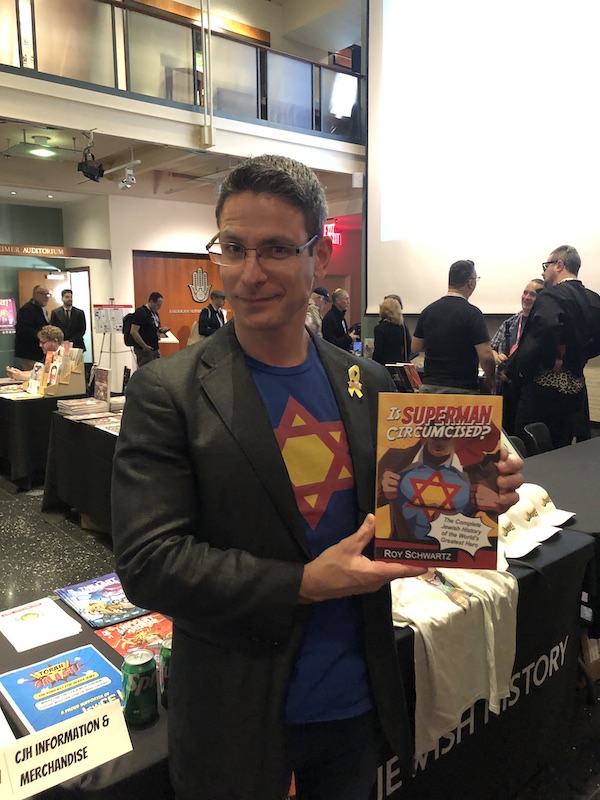
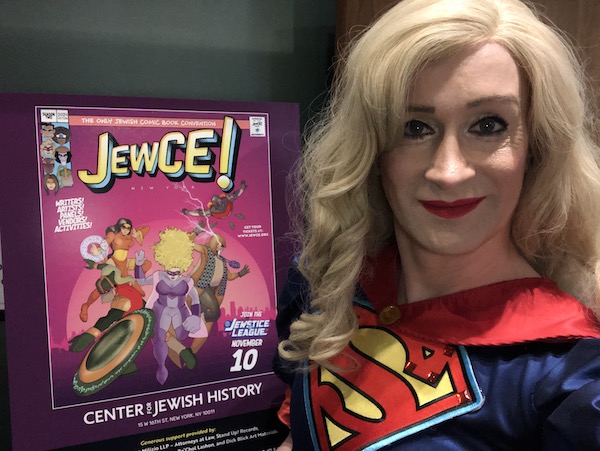
—END—
ChelseaCommunityNews.com (CCNews) is an independent, single-owner online newspaper providing news, arts, events, and opinion content to Manhattan’s Chelsea community and its adjacent areas (Flatiron/NoMad and Meatpacking Districts, Hudson Yards, Hell’s Kitchen, Broadway/Times Square, and the Penn Station area). Our editorial content is made possible by advertising revenue, grants, quarterly pledges of support, and voluntary reader donations (click here for our GoFundMe campaign). To join our subscriber list, click here to receive ENewsletters containing links to recently published content–as well as an occasional “Sponsored Content” email featuring an advertiser’s exclusive message.
ChelseaCommunityNews.com is a member of the New York Press Association (NYPA) and theEmpire State Local News Coalition. Our content is collected for placement in the United States Library of Congress’ LGBTQ+ Studies Web Archive. (“We consider your website to be an important part of the historical record,” read a July 26, 2019 email.) Our freelance reporters have been recognized by NYPA’s annual Better Newspaper Contest, with Honorable Mention wins for Best News or Feature Series (2021, 2023). CCNews is a three-time winner in the Coverage of the Arts category (First Place and Honorable Mention, 2022 and Third Place, 2023).
PLEASE SUPPORT LOCAL JOURNALISM: HELP CHELSEA COMMUNITY NEWS THRIVE BY FREQUENTLY VISITING THIS WEBSITE TO READ OUR ARTICLES AND CLICK ON THE ADVERTISEMENTS.
Questions? Comments? Want to Place an Advertisement or Make a Donation? Email Founder/Editor Scott Stiffler at scott@chelseacommunitynews.com.

You must be logged in to post a comment Login